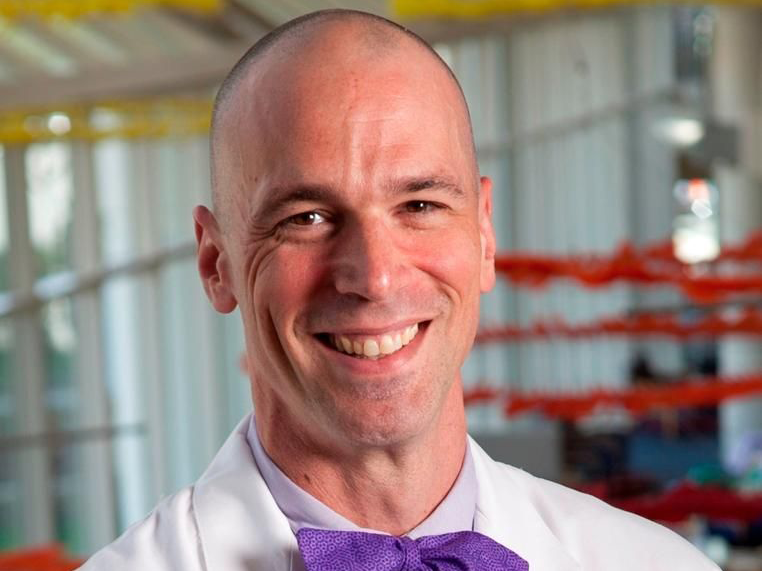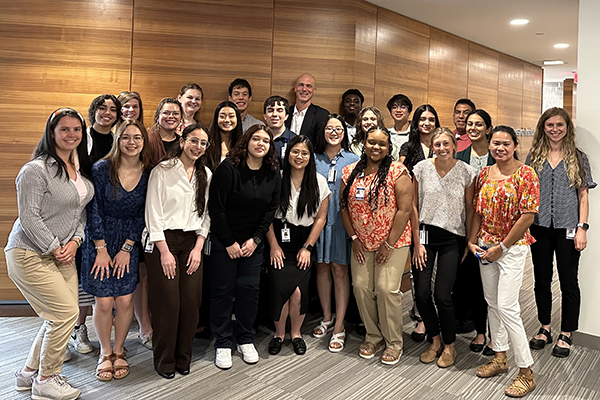Danny Benjamin, MD, PhD, MPH: Expanding Clinical Research in Rural Communities

For most of rural America, access to clinical research addressing rural health — and to physician-researchers focused on this area — is extremely limited. According to Danny Benjamin, MD, PhD, MPH, that’s simply not sustainable for long-term health in most of the country.
As a leader of a program designed to develop future researchers through hands-on experience and mentorship, Benjamin is working to address this shortage. His goal is to bring high-quality clinical trials to rural communities and improve access to medical research for areas with limited health care resources.
A new multi-institutional partnership — including Montana State University, Tulane University School of Medicine, Ochsner Health, Texas Christian University, University of Nebraska, Mercy Children’s Hospital, Penn State Health, Medical University of South Carolina, and Duke University — is bringing him closer to that goal. The initiative is sponsored by the Pediatric Trials Network.
A Program with Growing Reach
The Summer Training in Academic Research (STAR) program first launched in 2013 to give Durham high school students interested in science and medicine an opportunity to gain research experience. Over the years, it expanded to include undergraduate students from across North Carolina. By 2017, the program had gone national.
In 2023, the program received more than 500 applicants for 25 spots. The number of applicants more than doubled to 1,100 in 2025.
Expanding the Focus
Despite the program’s growth, Benjamin, the Kiser-Arena Distinguished Professor in Duke’s Department of Pediatrics, saw an opportunity to reach even more communities.
“The original STAR program recruited students primarily from urban areas,” he said. “Medicine is more than just the major medical centers.”
Now, through the new partnership and support from the Pediatric Trials Network, the STAR program is open to all medical students, with a specific research focus on improving rural health. By equipping future physicians with research skills and mentorship, the partnership aims to improve health care access and outcomes for patients in rural communities across the country.
“This expanded focus into rural areas helps us be in touch with the broader community. I really want to make the program reflect the country as a whole.”
Training Future Rural Researchers
Participants include undergraduate and medical students from universities across the United States, with partnering institutions leading recruitment efforts to attract students nationwide.
Students are assigned to small project teams and visit Duke for five weeks in the summer.
During their time at Duke, the 25 students attend lectures on topics that will prepare them to become researchers, including neonatology, statistics, epidemiology, and pharmacology. They also shadow Duke faculty in clinical settings and participate in professional development sessions. Outside of the time in Durham, they also receive mentorship virtually throughout the year and engage in near-peer mentoring, with medical students guiding the undergraduates.

Real Data, Real Impact
Working in small teams, the students take on a team-based research project over the course of the program, using data from the Pediatric Trials Network to conduct secondary analyses. With guidance from Duke Clinical Research Institute faculty, they learn how to analyze data, write abstracts, and prepare manuscripts for publication.
One research project looks at how medicines taken by breastfeeding mothers might pass into their breast milk and affect their babies. Students use real clinical data to help answer questions about which medications are safe to use while nursing — information that’s often missing but vital for families and doctors.
The students come away from the program with a published paper and valuable research experience that prepares them to better serve rural communities.
“There is a shortage of opportunities for people in those areas to be able to get the benefits of or to be included in clinical trials,” Benjamin said. “Having folks trained in clinical research will ultimately help get high-quality trials into rural areas and people advocating for trials focused on rural health.”
The Medical Student STAR Program initially started with a partnership between Montana State University and Duke University with a focus on pre-medical and medical students from the intermountain west. Benjamin said the initial cohort of students in 2024 was “incredibly strong,” adding that “those five students convinced us that we had something that might work; and that we needed to expand our reach.
“The undergraduates in schools that are not attached to a major medical center have more limited opportunities to shadow practicing physicians,” Benjamin said. “For many of the medical students, they don’t have access to the type of multi-center clinical trials data provided by the Pediatric Trials Network. Coming to Duke for the summer serves to provide access to both opportunities.”